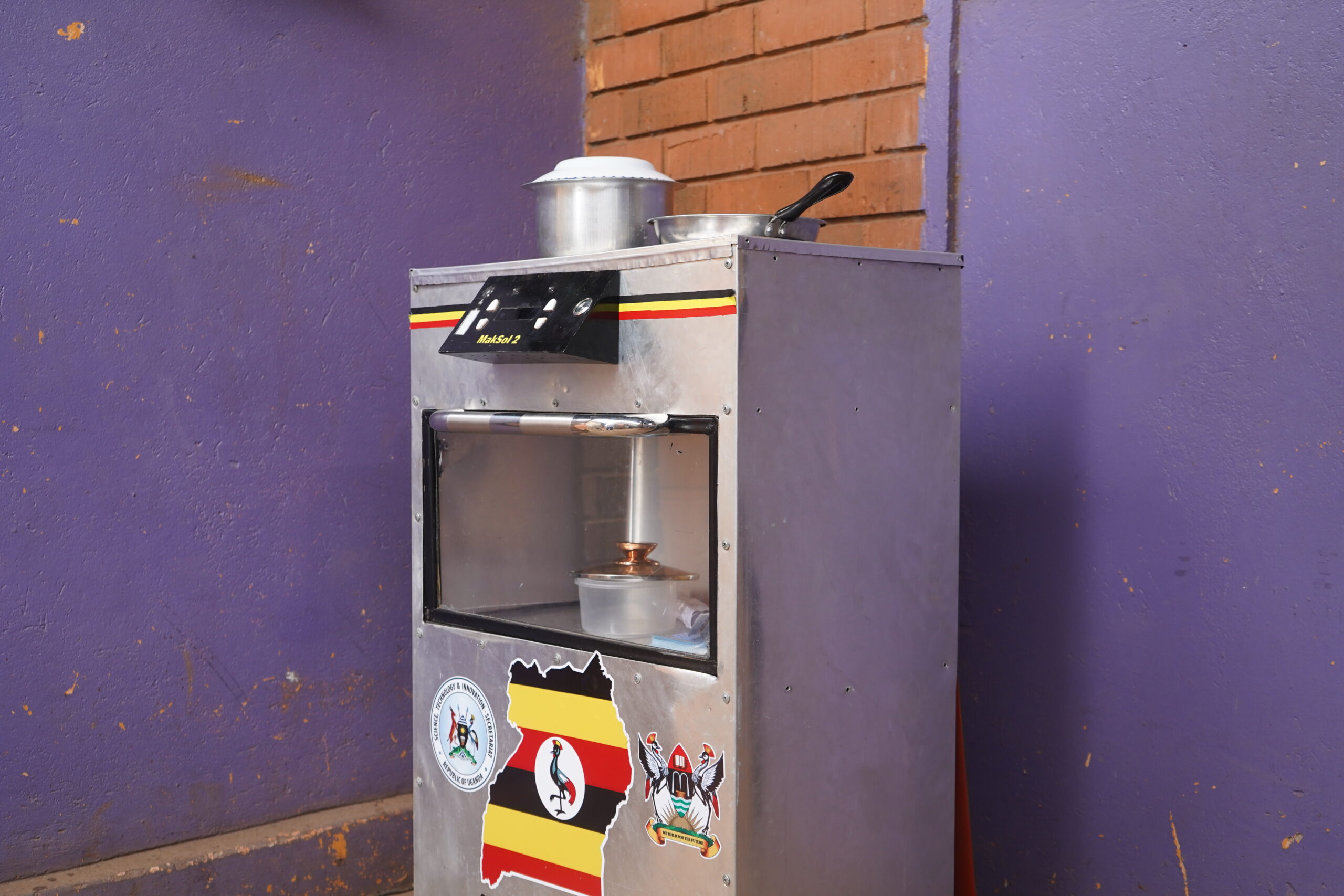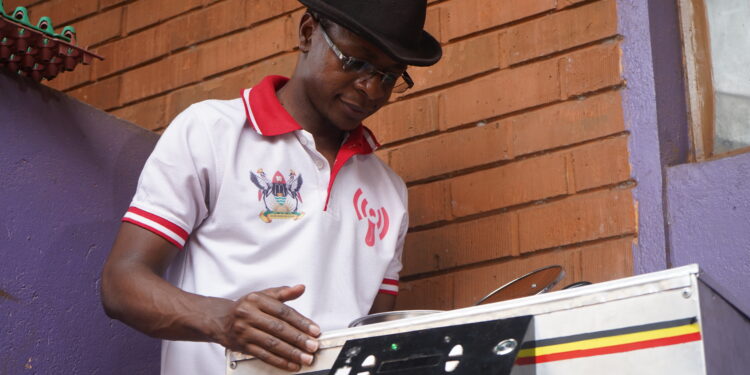Ruth Atim’s kitchen has a shiny out-of-usual electric cooker. It uses solar energy and is locally made.
It has relieved the family from the smoke-emitting stoves that rely on charcoal and firewood which are common in Ugandan households.
“Before, I was using charcoal for cooking, but I found myself spending a lot of money on it. I used to go through 2 sacks a month, and each cost about 35,000 UGX, totaling 70,000 UGX,” she shares.
The machine is wired to a solar panel on the roof, and Atim confidently says she is breaking away from the usual and moving toward a greener future.
“When you use charcoal, you’re also polluting the environment because it produces smoke that I believe is harmful to me and my neighbors,” she relates.
A health Risk!
The use of firewood and charcoal for cooking in Uganda has been tagged with exposing particularly girls and women (whom cooking is a household domain), to respiratory infections on top of deforestation.
Four millions of people die every year due household air pollution, according to the National Institutes of Health. The greatest burden is on low and middle-income country who rely on wood and charcoal to cook.
However, in Uganda, it is preferred in households because of cost of living. It is seen as ideal in the preparation of certain dishes that require slow cooking. The National Household Survey 2019/20 indicates that majority of households use combined biomass fuels (firewood and charcoal) as the main fuel for cooking accounting for 94%.
A threat to the environment!
Uganda is also losing its forest cover to cooking energy. Yet the Uganda National Bureau of Statistics (UBOS) estimates that the use of clean power and renewable energy sources like solar would reduce the reliance on wood fuel for cooking and ultimately protect natural resources.
Atim’s clean cooking solutions is an innovation of Paul Sodo, a young entrepreneur who is seeking to provide renewable energy solutions to the country’s growing urban population.

The graduate of engineering explains that his love for solar innovations started way back in 2016 after seeing the power of solar panels to light the bulb, power television, and charge phones.
“But then the pondering thing that was always on my mind was, how can we cook with solar? … we started doing experiments that blew up, but for me I saw that the future of cooking has been invented. Afterwards, I wrote a project together with a professor Dr. Peter Tumutegyereize, at Makerere University, and it was awarded grant funding. From that day, the rest was history,” he says.
He further explains that the solution works in the way that you only need a cooker and solar panels to start cooking unlimitedly.
According to Ojoko Kenneth, the project designer , the innovation is an induction cooker therefore, it uses cookwares that have some steel, like stainless steel saucepans which are attracted by a magnet.
He further notes that the cooker has two cook zones of which one is faster than the other. He notes that it is another way that helps the user to manage the cooker battery. In addition, it has button controls for cooking zones, and a free middle space for an oven that is yet to be advanced.
Besides protecting the environment and human health, the initiative has given employment opportunities to over 20 young women and men who work at different stages of the process.
“We get students who are in their final year at the university to come and do their internship with us. Eventually some get retained. If they are well behaved, hardworking, and diligent with their work then we upgrade them to full-time employment,” he notes.
However, the innovation still registers challenges, including the importation of materials and the manual processes. his prolongs the process and delays the numbers of the cookers we would be making every month.
“It gets so tiresome for the employees as most of the work requires energy, but we are looking at how we can involve the use of the machines to manufacture the cooker. With advancement in technology, I am sure that many changes will be applied to the new version.” he concludes.
The innovator is thus looking for sustainable solutions, including machinery that would help speed up the production process because of the availability of a ready market for the product.
Recently, in the quest to stop degradation, the country’s president Yoweri Kaguta Museveni signed an executive order banning tree cutting for commercial charcoal production in the country.
“This is a good sign that if we invested in such a project, we would save the situation,” Sodo noted.



